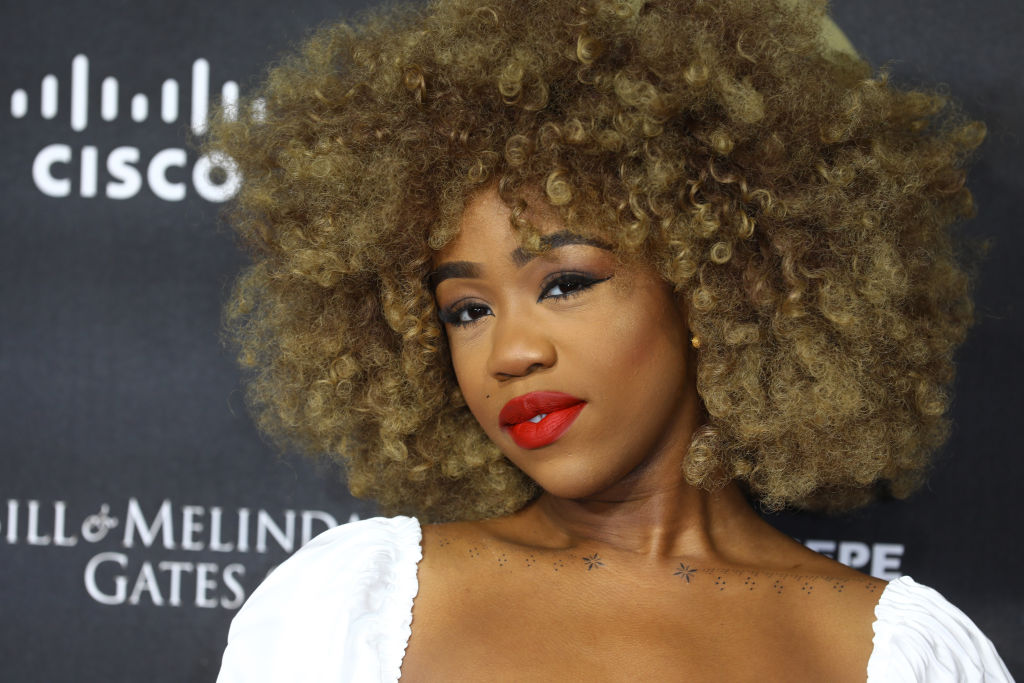THE FIRST and only time I met the Slumflower, also known as Chidera Eggerue was in 2018 when I interviewed her for inews.
I mentioned in the interview that the first thing she did was complement me. She told me this was in order to validate me, because it is difficult for Black women to exist in the British media industry.
A lot of us, young Black women coming into our feminism needed her radical language of self-acceptance. She reminded us that it was ok to let your body hair grow and allow your body to be, rather than fight with it.
Chidera paid a high price for being outspoken, and far too often, she was the victim of racist and sexist abuse like many other outspoken Black women online.
Even back then, however, critique of her discourse was beginning to grow.
When she tweeted and then deleted: “The only solution to ensure the safety of women, is for men to not exist” in 2018, people like TV Executive and social commentator Danielle Dash raised concern.
She pointed out that it was important that Chidera received guidance from other Black feminists.
Even then, it felt dangerous for me to criticise her.
I remember only receiving a copy of Chidera’s book, when the overall positive article was released, but being assured that this was just a mistake.
I remember also, wondering what Chidera meant when she told me she couldn’t stop until women in Nigeria were free. Her actions have helped many, but to my knowledge (and I may be wrong), they did not extend to specific actions to tackle challenges faced by women in Nigeria.
Others like writer Zoe Williams pointed out that her statements on romantic relationships between men and women felt too transactional.
So the events of yesterday and this morning, are not the first time that Chidera has been criticised in light of Twitter storms.
Most recently, she is under scrutiny because she asked fellow author and influencer Florence Given to give her 70% of future royalties for the book Women Don’t Owe You Pretty – or pull the book and give Chidera all her royalties.
Chidera thinks this is justified because she believes Women Don’t Owe You Pretty substantially copied her own book What A Time To Be Alone.
Florence Given has denied this, and has in the past said that she takes part in her own personal form of reparations by donating to specific organisations.
It has been pointed out by Gal-Dem Politics Editor Moya Lothian-McLean that both Chidera and Florence were heavily inspired by feminists that came before them, but also that we need to consider the impacts of putting both these young people on pedestals – because it ultimately leaves them in vulnerable positions.
Writer Jason Okundaye suggested that Chidera was wrong to use the language of reparations to make her demands to Florence, and others with large followings liked the tweet.
This is what led to the scenes we saw unfold in the early hours of this morning.
Chidera then sent a number of people long direct messages that criticised them personally. She said to some that she would see them around.
Recipients of these messages included writers Jason Okundaye and Chanté Joseph.
Alongside personal insults, Chidera suggested they should be grateful that she was taking on a white publishing industry, because this would eventually benefit them as writers.
These messages were shared publicly and caused a Twitter storm that led to a number of rooms being created on social media platform Clubhouse.
In one room, victims of the messages shared their experiences. Some have interpreted this room as maliciously targeting Chidera. At one point The Slumflower herself entered and was invited on stage but declined and left.
I will say, that I was in the room for a period of time, and the victims of the messages that I have mentioned here were not unkind.
There was talk about how we create constructive places of fair critique for Black women, and whether Black women weaponise our identities to avoid taking accountability.
But not everyone was kind, and some did state that they were not there to be kind.
Chidera herself has said it is hard to distinguish between when people are offering genuine critique and when they are projecting.
It was a point that she mentioned in her interview with me, two years ago.
I hope that we all proactively create communities around us, with people that we trust and respect enough to hold us accountable.
I can’t help but think that whatever side you stand on, the social media platforms that kept us all up watching it unfold last night, are the only ones that won.


Comments Form
1 Comment
Thank you for this article, I think it sums the situation up really well